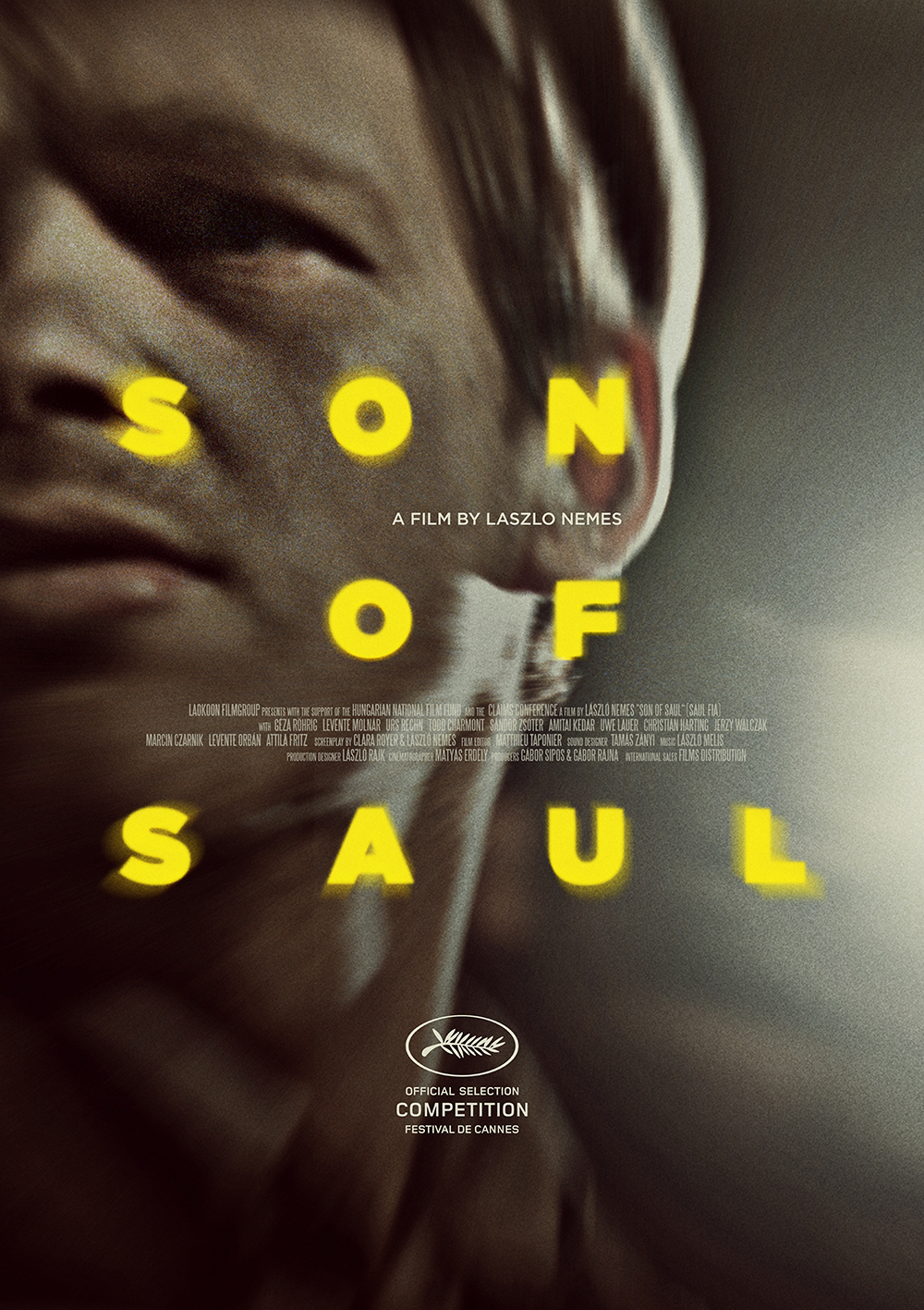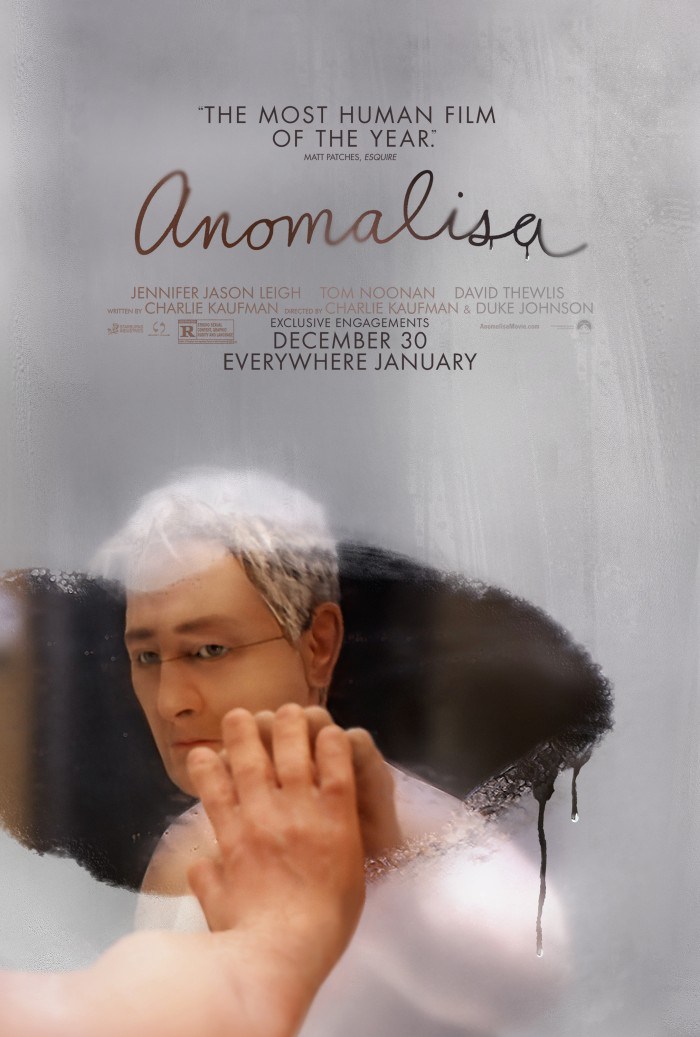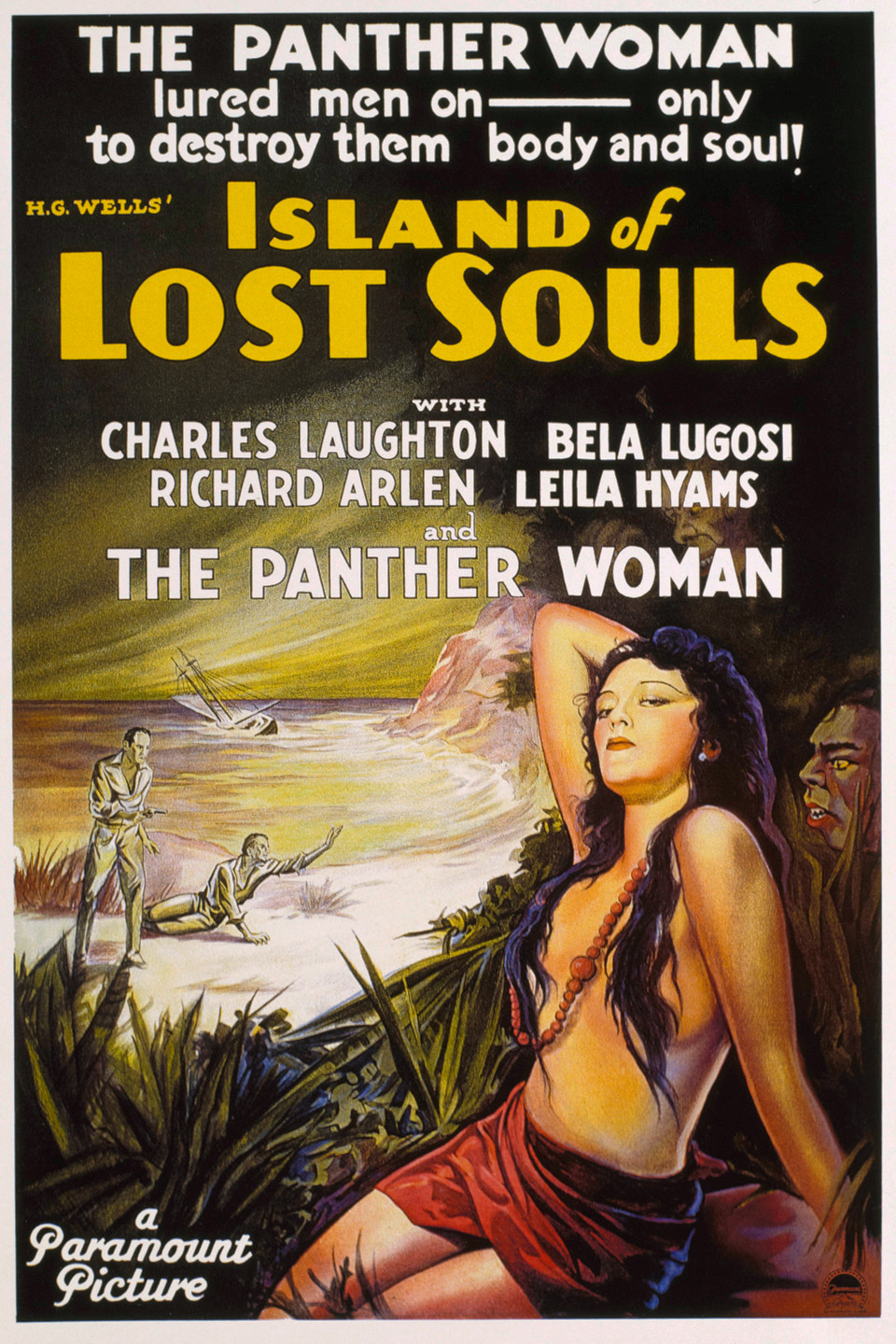
Son Of Saul (2015)
Dir. László Nemes
Written by László Nemes, Clara Royer
Starring Géza Röhrig, Levente Molnár, Todd Charmont, Urs Rechn
“And I don't think we really need another film about the Holocaust, do we? It's like, how many have there been? You know, we get it - it was grim, move on. [But]... I've noticed that if you do a film about the Holocaust - guaranteed Oscar,” says Kate Winslet in her 2005 episode of Extras. She subsequently went on to win a Best Actress Oscar three years later… for a film about the Holocaust. Incidentally, this one also won. Ain’t life too funny? But yuks aside, she’s not wrong, Holocaust films are only slightly less ubiquitous than Dracula adaptations these days. And yes, we get it - it was grim, and --if movies are to be believed-- usually also it inspired heartwarming acts of compassion. Is there really a lot more to say about this? SON OF SAUL answers Kate directly: yes, there is. At least a little bit more, and especially if said with this degree of stylistic verve and audacity.
This --holy cow-- debut feature of Hungarian director László Nemes somehow finds an intriguing new angle on abject human suffering, depicting Saul, a Jewish-Hungarian prisoner in Auschwitz. Saul has been commandeered into a job as a Sonderkommando, a forced laborer whose job primarily consists of helping the Nazis recover valuables from, and dispose the bodies of, gas chamber victims. This work has clearly taken a significant toll on his mental health, and the brilliant 35mm camerawork by Mátyás Erdély (THE QUIET ONES, JAMES WHITE) emphasizes his self-protective myopia by maintaining a tight shallow focus on Saul and leaving everything outside a few feet from his head a hazy blur. I should say, maintaining a radical tight focus; virtually the entire movie follows Saul and his perspective --and frequently just the back of his head-- as he wanders through a mercifully blurry hellscape which had become horrifyingly routine to him. But Saul’s numb withdrawl is broken when he finds a corpse of a young boy who he insists (despite some evidence to the contrary) is is son, and he becomes singlemindedly fixated on finding a rabbi to give the boy a proper burial. This task --difficult enough in a death camp-- is further complicated by a burgeoning prisoner revolt which requires Saul’s increasingly unstable help, substantial language barriers, and the ever-present danger of getting shot or thrown into the gas chamber with everyone else. Against all odds, then, SON OF SAUL is actually more thriller than weepy-eyed melodrama, a harrowing race-against-the-clock by a man who literally has nothing to lose, and will risk his own life and anyone else’s in this final, clumsy, fanatical gesture towards not entirely losing his soul.

As Saul, Hungarian-born Bronx-based poet Géza Röhrig (who had acted only twice before, in two late 80’s TV productions) brings a stubborn, stoic intensity to a complicated and not always entirely sympathetic role. Saul is so single-minded in his pursuit of dignity for the dead that he frequently abandons the living, giving us something maybe genuine new in a Holocaust film -- some deliberate moral ambiguity. He’s had to endure unimaginable horrors, but he’s also not a passive victim or a saintly martyr, he’s a flawed but fierce man dealing with being pushed to the outermost extremes of the human condition the only way he’s able. It ensures the film is about more than a simple revolt against the forces of inhumanity, and it makes Saul’s redemption arc all the more uncertain.
These nuances are good, because as upsetting as it is, Nemes crafts such kinetic, intense scenes with his showy, relentless handheld-camera takes that the movie actually threatens to be exciting. Fortunately it’s about stuff too, so we’re not put in the uncomfortable position of recommending an art film set in Auschwitz simply because it’s inarguably an edge-of-your-seat white-knuckled thrill ride. Please don’t credit me on the poster with that quote, thanks guys. But seriously, there are sequences in here so wildly immersive that you’ll forget you’re supposed to be all reverent about this and simply get lost in the wild abandon of the filmmaking. At its best, though, it does both -- a sequence where Saul accosts a group of new arrivals marching to their deaths in a corpse-strewn firepit is as nightmarish and gut-wrenching as anything which has ever been put to celluloid, but also packed with both powerful human moments and a terrifying, desperate urgency which can’t help but be thrilling even as it is utterly repulsive. Cinema doesn’t get much more powerful than that. It’s a sequence which I expect to remember very vividly many years from now.

But there are quieter moments, too, which are no less powerful. Saul can be a difficult character to entirely understand or identify with, but there’s no missing that there’s a lot going on behind his eyes. In fact, just before the scene I just described, there is another, almost equally intense scene, on a much more intimate scale. Saul is tasked with picking up a crucial item from a fellow conspirator named Ella, who he says he doesn’t know. But when he sees her, it becomes obvious they do know each other. Who she is, exactly, and how they know each other --let alone why he would lie about it-- we are never told. But they have a fraught, emotionally painful conversation with just their eyes, in total silence. Much of the movie evokes the searing, virtuosic depictions of chaos and horror in things like COME AND SEE and CHILDREN OF MEN.* But it’s impressive that Nemes can find such rich and mysterious feeling in smaller moments, too. It’s this sort of brilliant evocation of both the subtle and the grandiose that helps SON OF SAUL transcend pigeonhole labeling. We may not need any more film about the Holocaust, but this is simply a great film -- and we need all of those that we can get.
*And I don’t mean it’s derivative; comparing anything to COME AND SEE is among the highest compliments one can pay.
 |
| You loved the movie? Buy the merchandise! Collect all four limited-edition slurpee cups! |














